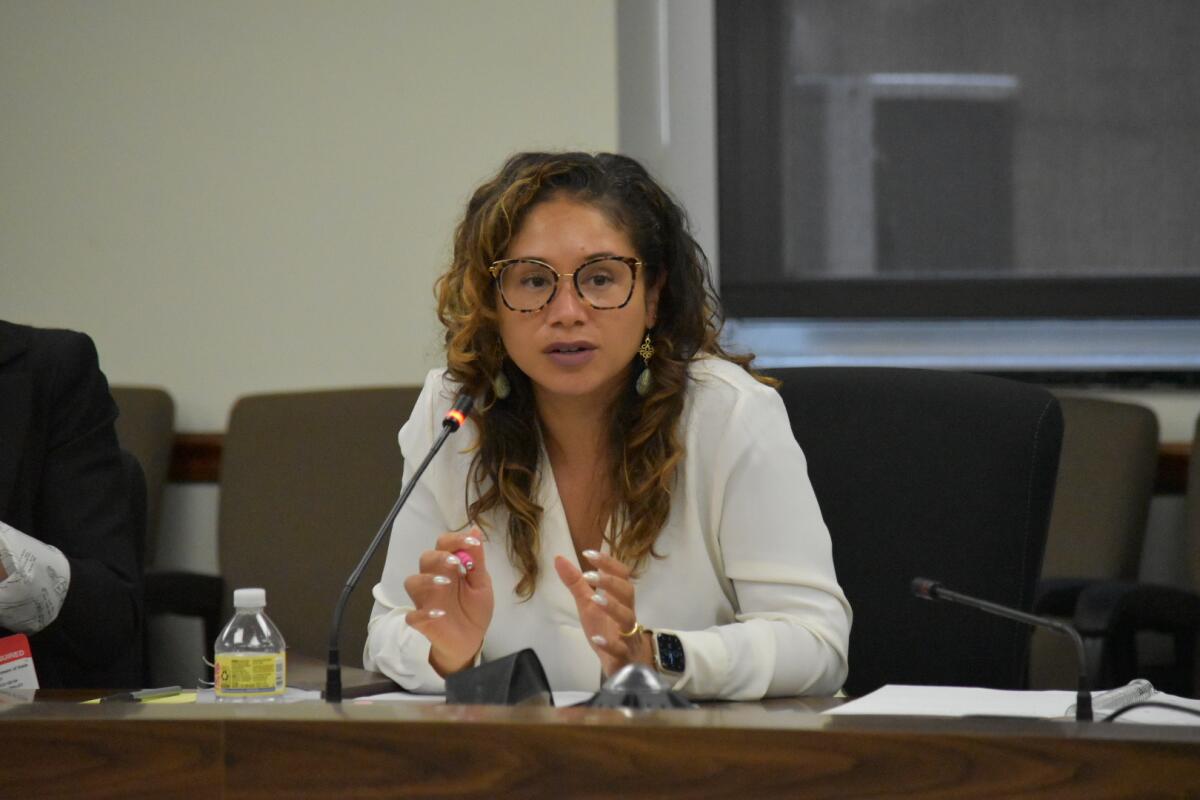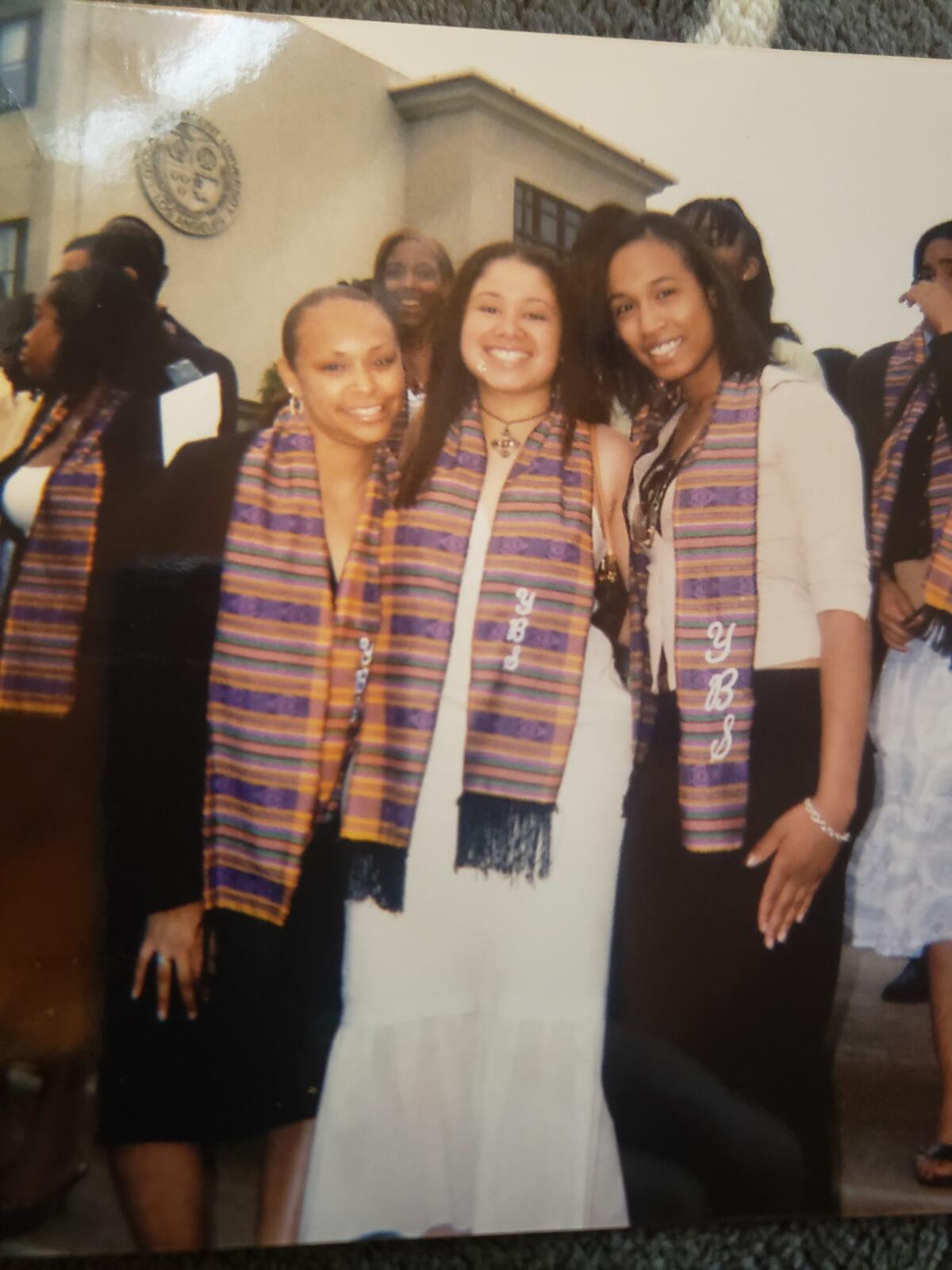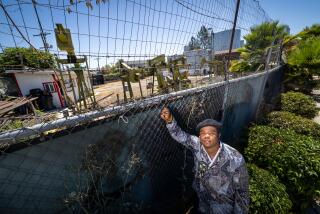Column: From South Los Angeles to the State Department, fighting for social justice

Growing up in working-class Black Los Angeles, Desiree Cormier Smith was the brainy Catholic school kid who knew she wanted a career in public service, “but I didn’t know what was possible,” she said.
Now Smith is in the process of finding out, in a very high-profile way: she’s the nation’s new “Special Representative for Racial Equity and Justice,” leading the Biden administration’s State Department campaign to make human rights for marginalized groups a foreign policy priority.
The initiative grew out of an executive order issued by President Biden on his first day in office, requiring every federal agency to “recognize and work to redress inequities in their policies and programs that serve as barriers to equal opportunity.”
For the State Department, that means addressing the plight of racial and ethnic minorities in regions where they’ve been persistently oppressed, and evaluating whether U.S. policies contribute to that.
What it does not mean is imposing our judgements on other countries, or grabbing the mic when we should be listening.
Smith understands the tensions inherent in that. “We have to talk to people about what they need and how our embassies in their countries can uplift and support them,” she said.
“It can’t be us trying to apply the American lens on racism to what is a global problem.”
I was relieved to hear Smith acknowledge that, because our American lens has been disfigured for centuries; cloudy, cracked and blurred beyond recognition by poisonous race and class distinctions.
Smith is realistic about the challenges she faces. She may not have the typical diplomat’s pedigree, but her social conscience developed naturally.
She hails from one of Black L.A’.s most notable clans, an extended family of public servants, artists and activists. Her late grandfather, family patriarch Larry Aubry, left such a legacy of civic activism — on education, job training, fair housing and police accountability — that he was known as the “Godfather of South Los Angeles” and the “Conscience of Black L.A.”

As a child, Smith spent summers with a half-dozen cousins at her paternal grandmother’s home in South Los Angeles, where love was abundant but the budget was so tight that lunch was sometimes mustard sandwiches.
The rest of the year, she lived with her single mother and maternal grandparents in an Inglewood home busy with relatives coming and going, and lively with music and rip-roaring talk about civil rights.
Smith credits that upbringing with shaping her big-tent thinking. “Growing up in the care of such a large and close-knit family taught me that I was inherently part of a collective,” she told me.
Smith was tapped to head the State Department’s racial justice program in June, after several years with the department and advising international human rights groups.
I was curious about what led her to foreign diplomacy, so she walked me along her serendipitous career path.
Her first trip overseas — a summer visit to France with her high school French teacher and a group of students — “really changed my life,” Smith said. “It made me realize there was a huge world out there,” and that even international tourism had racial dimensions.
“It was the first time people asked me where I was from,” Smith recalled. “When I said ‘America,’ they said, ‘Where are you really from?’” She was bothered by that. “Why can’t I be just American? Because I’m not a white American?”
Smith left L.A. for Stanford the next year, with a full scholarship but no idea where her studies might lead. She was juggling part-time jobs to pay for her books when a friend told her about a foreign affairs fellowship that would cover all her school expenses and could open the door to a State Department career.
Smith was awarded the fellowship, earned a bachelor’s from Stanford, with a double major in psychology and political science, then a master’s from Harvard in public policy. Her first foreign service post, in 2009, was a two-year stint in Mexico, followed by a posting to South Africa.
“My family was really excited for me — except for my grandfather,” Smith recalled ruefully. He had strong misgivings about her foreign service commitment. “Why would you go overseas,” he’d ask, ”when there are so many problems here?”
Why indeed? Given our own long-standing racial inequities — in housing, healthcare, education, income and more — who are we to be schooling others about racial justice and equity?
We do it because our fates are interconnected, Smith told me. As we work on racial issues around the world, we gain insight into our own shortcomings. “We know that racism and anti-Blackness is an international phenomenon. I see the same problems in Inglewood and Ghana.”
And part of her mission is to address the systemic racism embedded in our own policies and programs. “To be credible champions for human rights abroad, we have to be credible at home.”
The initiative on race and ethnicity isn’t the State Department’s only equity project. In fact, it took a while to get going.
The department had already dedicated officials to deal specifically with LGBTQ concerns, international disability rights, global women’s issues, religious freedom and antisemitism. “There was a gap that needed closing,” Smith said.
Not everything on her agenda has headline potential. Her team is also addressing basic changes that promote inclusion abroad and at home, such as developing sophisticated “social inclusion analysis tools” that can identify problems and measure progress.
They are also planning for the future by helping disadvantaged college students in the U.S. access opportunities to study abroad, and they are partnering with South American countries to encourage Afro-Latino and Indigenous students to consider foreign service careers.
Because Smith hasn’t forgotten what made her own career possible: the school trip that opened her eyes to the world beyond our borders, and the fellowship that prepared an Inglewood kid to make an international difference.
More to Read
Sign up for Essential California
The most important California stories and recommendations in your inbox every morning.
You may occasionally receive promotional content from the Los Angeles Times.










